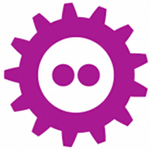ABIS Infor - 2016-02
Free & Open Source Software
Summary
Open-source software is more and more emerging, as a worthwhile and often even superior alternative for often (too) expensive commercial solutions. But sometimes there exist a few misunderstandings about what exactly is "free" and/or "open" software. A short heads-on!
Free software and source code
The term "free and/or open software" refers to two important concepts: on the one hand, software which the original author makes "freely" available to others, giving them the right to do whatever they want, especially modifying it, extending it, or building it into other software. Therefore, and that's the second concept, the source code must of course be "open" (available). Strictly speaking, these are two separate concepts; source code can e.g. be open but not free to be used.
There exist several variant license conditions under which "Free and Open Source Software (FOSS)" can be made available, ranging from "without charge, and free to modify" over "centrally maintained by a large group of volunteers" to "free to use for non-commercial purposes only".
Remarkably many contemporary high-quality software is FOSS. Very often, indeed, "open source" is a guarantee for quality, because several developers and users had the opportunity to look into the implementation details, so they could correct bugs or incompletenesses, which hence get fixed more quickly and more accurately.
A brief history ...
Until the beginning of the seventies, computer manufacturers could make their main profit from hardware sales, and the software was often delivered with it, free of charge. The era of commercial software began after that time: companies started to sell software in binary format (already compiled, hence closed source), with gradually more and more built-in security against illegal copying.
A reaction against this tendency started in the eighties, when Richard Stallman started the GNU project. This would later grow into Linux, the first Free Open Source operating system. (UNIX was already Open Source but not Free.) Initially the most important GNU product was (and still is) GCC, the GNU C compiler, since it allows to compile the (open) source code on a plethora of hardware variants.
Recent evolution
It should be clear that FOSS does not mean absence of software licenses: most FOSS is distributed under the GNU General Public License (GPL) and meanwhile there exist several other license variants which regulate the allowed use of the software, in different levels of "freedom". Just think of e.g. the free versions of the RDBMS systems Oracle, DB2 and SQL Server (which are, to be clearly understood, not at all FOSS).
"Free" does not (necessary) mean "free of charge": FOSS is rather a (software) political statement about "to be freely used". IBM, Microsoft and other large software producers are now gradually (hesitatingly?) joining the FOSS story: think of e.g. Microsoft's contributions to "Open Database Connectivity" (ODBC) and the "Office Open XML Standard" (OOXML, better known as docx & xlsx), of Oracle's take-over of Java, OpenOffice and MySQL, and of IBM's "pushing" of e.g. Linux, Eclipse and Hadoop, all FOSS.
Some of the more recent large players on the informatics podium became actually what they now are by using or even thanks to FOSS: Google, Amazon, Facebook, Samsung, ... Some non-profit organisations actively promote FOSS. Most known ones are FSF, de Free Software Foundation, and the Apache Software Foundation, which is known from a.o. its webserver, but is by now an umbrella organisation for a.o. Hadoop, OpenOffice, Maven, Struts, Tomcat, Subversion, SpamAssassin, ...
Other examples of well-known FOSS are: Mozilla Firefox, VLC Media Player, MySQL, and Linux.
FOSDEM
In 2001, the belgian Raphael Bauduin initiated the yearly event "Free and Open Source Developers of Europe Meeting" (FOSDEM). This year, FOSDEM took place for the 16th time, during the last weekend of January, and its venue was as always the campus of ULB in Brussels.

Purpose of FOSDEM: being a meeting place for (in the first place) software developers, by lectures, discussions, (book) stands, prototypes, so-called "Dev Rooms", and the occasion to exchange ideas. Each year, about 4000 participant from all over Europe gather, with (next to many Belgians) a remarkably large participation from The Netherlands, Germany, and Spain.
FOSDEM is completely free of charge for participants; the necessary financial resources are donated by some bountiful participants, and by a few "open source" companies like Red Hat and Google. Concerning the practical organisation and the cleaning-up afterwards, a large group of (mainly young) volunteers offer their free time.
Most lectures are rather technical in nature, but of course still very interesting. Some less technical highlights this year were a.o. the following lectures:
- plenary lecture by Blake Girardot on the use of open source mapping tools for a.o. humanitary activity after the earthquake in Nepal last year.
- een plead by Juan Julián Merelo for "more attention for beautiful, effectieve, practically useful (perl) programs and less for just syntax; more use-case based; and with built-in testing and debugging" when teaching informatics courses.
- Bernard Tyers on "how could I contribute to open source?"
- A good overview of the virtualisation platform "Docker" by Bruno Cornec.
The number of "Developer Rooms" grows year by year; new ones this year were a.o.: Big Data; Free Java; Geospatial; Open Game Development; and Open Source Design.
Conclusion
It should be clear by now: Free and Open Source Software is here to stay; actually, it will be the future for the informatics landscape of the next decennium. Big companies are gradually catching up with respect to FOSS. The contribution of FOSS in the ensemble of software we'll be supposed to use will only increase during the coming years. Time to dig into it, in case you did not yet do so!
We suggest you also take a look at our offering of courses related to Open Source Software, in particular Java, Perl, MySQL & MariaDB, JavaScript, and Big Data. And don't forget our UNIX courses!
References:
- https://projects.apache.org/
- https://fosdem.org/
- https://en.wikipedia.org/wiki/Free_and_open-source_software